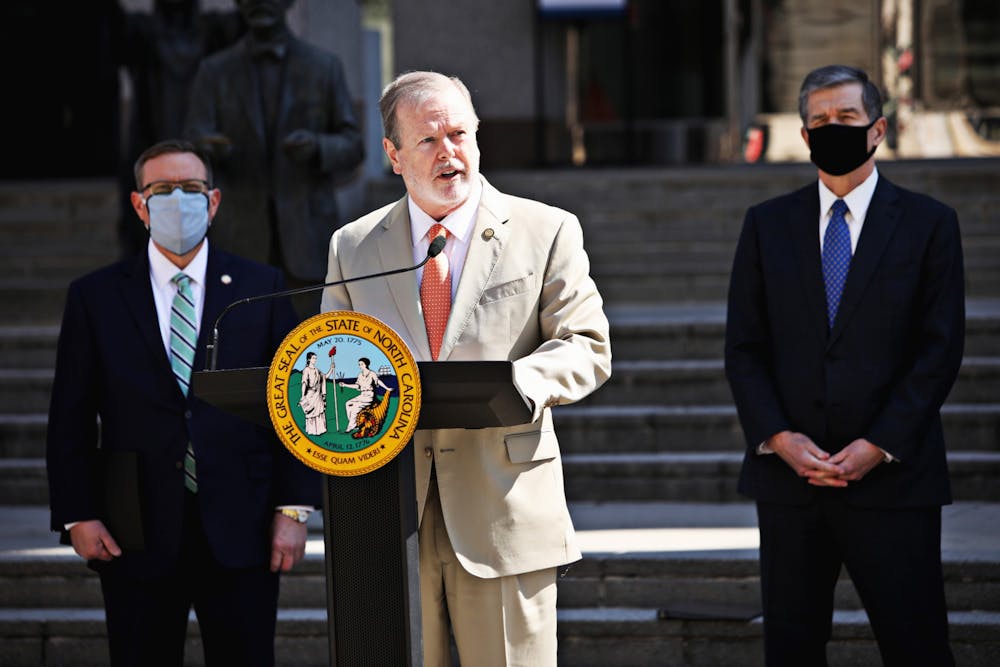A federal judge placed a preliminary injunction Saturday on two parts of North Carolina's four-month-old abortion law, S.B. 20, which was passed over the veto of Gov. Roy Cooper by Republicans in the N.C. General Assembly.
A larger challenge to the law will continue, but provisions requiring surgical abortions to be performed in hospitals and limiting the prescription of abortion-inducing drugs will not be allowed to take effect.
"I’m encouraged that the court has struck down these restrictions on women’s reproductive freedom," Attorney General Josh Stein, who is a defendant in the case but opposes the law, said in a press release. "The law is not based in medical reality, and it was sloppily written. Women, not politicians, should be making these decisions."
Abortion-inducing drugs and intrauterine pregnancies
One of the provisions in the law requires a medical professional to document the "gestational age and existence of an intrauterine pregnancy" before administering an abortion-inducing drug.
But, the district court said, this requirement essentially prohibits abortions until well into the second month of pregnancy because physicians cannot determine whether a pregnancy is intrauterine without an ultrasound — which will not show an embryo until the fifth or sixth week of pregnancy.
The court said this provision is likely unconstitutionally vague, especially since another provision of the bill explicitly permits abortion until 12 weeks and because the potential criminal penalties for physicians were unclear.
Much of this controversy comes from ectopic pregnancies — when an embryo grows outside of the uterus. Abortion medication generally does not affect ectopic pregnancies.
Often, ectopic pregnancies are difficult to diagnose, but S.B. 20 would likely prohibit a physician from prescribing abortion medication, even if the patient is at low risk for an ectopic pregnancy.




